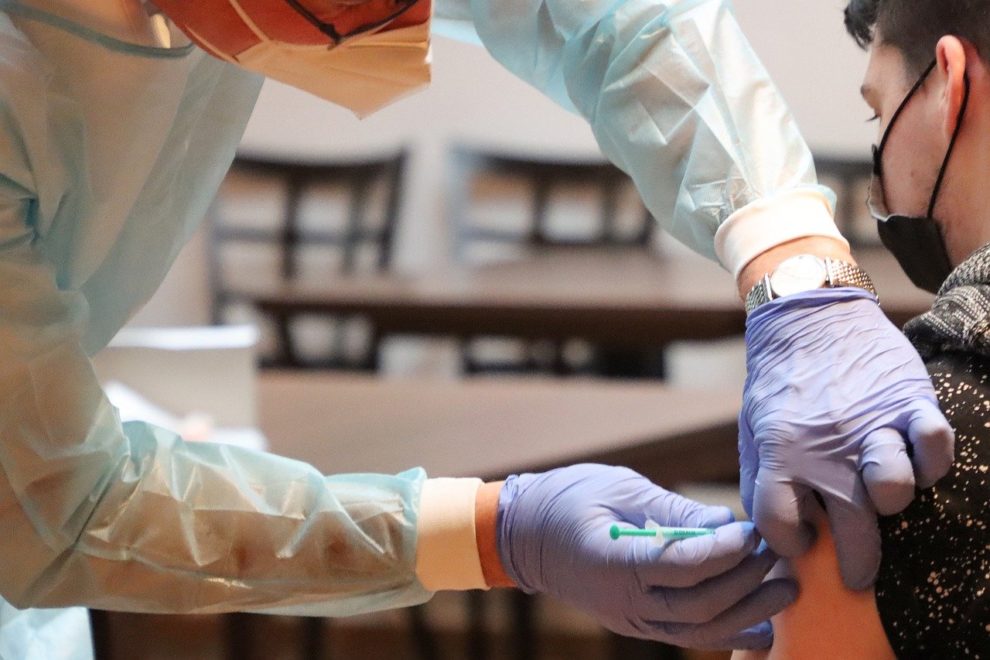Vaccines alone can’t stop new coronavirus strains, researchers say, adding that face masks and social distancing are also essential, according to a study Published Friday in Nature Scientific Reports.
Vaccination alone will not stop the spread of new variants and may even accelerate the evolution of strains that evade their protection, according to a study by researchers published on Friday.
They stated that people should wear masks and take other precautions to prevent spread until nearly everyone in a population has been vaccinated.
Their findings, published in Nature Scientific Reports, back up the US Centers for Disease Control and Prevention’s unpopular recommendation that even fully vaccinated people begin wearing masks again in areas of sustained or high transmission.
“We found that a fast rate of vaccination decreases the probability of emergence of a resistant strain,” the team wrote.
“Counterintuitively, when a relaxation of non-pharmaceutical interventions happened at a time when most individuals of the population have already been vaccinated, the probability of emergence of a resistant strain was greatly increased,” they added.
“Our results suggest that policymakers and individuals should consider maintaining non-pharmaceutical interventions and transmission-reducing behaviors throughout the entire vaccination period.”
“When most people are vaccinated, the vaccine-resistant strain has an advantage over the original strain,” Simon Rella of the Institute of Science and Technology Austria, who worked on the study, told reporters.
“This means the vaccine resistant strain spreads through the population faster at a time when most people are vaccinated.”
However, if non-pharmaceutical interventions such as mask use and social distancing are maintained, the virus is less likely to spread and change.
The team used a mathematical model to predict these changes, but their findings are consistent with what is known about virus epidemiology and selective pressure — the force that drives any organism to evolve.
This is especially true for a more transmissible variant like the Delta variant, according to Fyodor Kondrashov of the Institute of Science and Technology Austria.
“Generally, the more people are infected, the more the chances for vaccine resistance to emerge. So the more Delta is infectious, the more reason for concern,” Kondrashov told reporters.
“By having a situation where you vaccinate everybody, a vaccine-resistant mutant actually gains a selective advantage.”
The US Centers for Disease Control and Prevention (CDC) updated its mask-use recommendations on Tuesday. Earlier this year, the CDC stated that fully vaccinated people are very safe from infection and can remove their masks in most situations.
It is now stated that even fully vaccinated people can catch the virus on occasion, and that if they catch the Delta variant, they are just as likely to infect someone else as an unvaccinated person would be. It advised everyone in areas where virus transmission is high or sustained to wear masks when around others.
While the CDC was not considering the evolution of variants, Kondrashov suggested that those who are skeptical of maintaining vigilance should be.
“By preventing spread of vaccine resistant strains, you are preventing evolution of this virus,” he added.
“We have two tools in our toolbox to do this. One is non pharmaceutical interventions such as mask wearing and the whole shebang, and the second is vaccines. From an evolutionary perspective, what is necessary to reduce this (spread) is to vaccinate as many people as possible as fast as possible and across the globe.”
